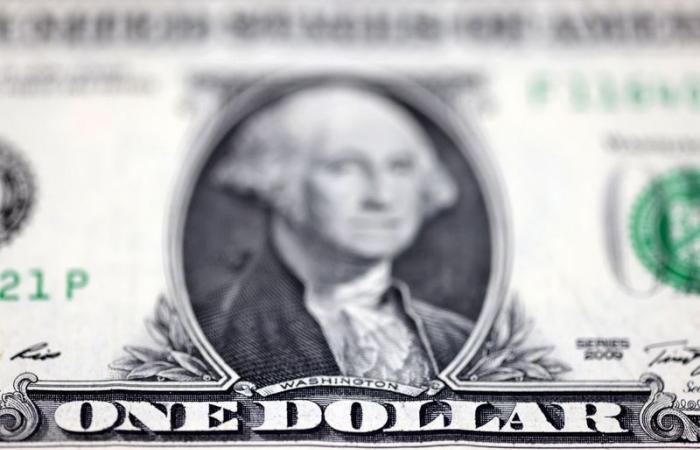The dollar held steady on Monday after U.S. inflation data showed only a modest rise last month, easing some concerns about the pace of U.S. interest rate cuts next year, while the yen remained near 156 to the dollar, raising the possibility of intervention.
Investor sentiment also improved as a U.S. government shutdown was averted with Congress passing a spending bill early Saturday.
During this holiday week, trading volumes are expected to decrease as the end of the year approaches.
Last week, the Federal Reserve shocked markets by planning a measured pace of interest rate cuts, sending Treasury yields and the dollar soaring while casting a shadow over other economies, particularly in emerging markets.
Friday's data on the Fed's preferred inflation gauge showed moderate monthly price increases, with a measure of core inflation posting its smallest gain in six months.
Nonetheless, the annual increase in core inflation, excluding food and energy, remains stubbornly well above the US central bank's 2% target.
Operators are counting on a rate cut of 44 basis points next year, a little less than the two 25 basis point cuts planned by the Fed last week. She had planned four reductions in September. Market prices pushed back the first easing of 2025 until June.
The Dollar Index, which measures the U.S. currency against six of its major counterparties, was steady at 107.78 on Monday, near its two-year high of 108.54 hit on Friday.
The euro held steady at $1.0434, near a two-year low reached in November, and has lost 5.5% this year.
“When optimism is rising and market multiples are rising, all it takes is a little fear to remove the veneer of a market rally,” said Brian Jacobsen, chief economist at Annex Wealth Management .
“This year has seen a number of setbacks that, in retrospect, were just blips. In due course, they felt like existential crises. Perhaps the fact that the Fed is talking two reductions in 2025 instead of four is just another one of these obstacles.
The rising dollar, combined with inaction from the Bank of Japan last week and comments from Governor Kazuo Ueda reducing the chances of a Japanese rate hike next month, have left the yen near weak levels that could prompt authorities to intervene.
The yen was easier at 156.65 per dollar, near the five-month low it touched on Friday. The yen's fall has prompted verbal warnings from Tokyo authorities, and analysts expect further rants through the end of the year.
In what turned out to be another turbulent year, the yen hit multi-decade lows in late April and again in early July, falling as low as 161.96. for a dollar, which led to interventions from Tokyo. It then reached a 14-month high of 139.58 in September, before giving up those gains, returning to around 156 today.
The currency is under pressure from a strong dollar and a wide interest rate gap, which persists despite the Fed's rate cuts. It has lost more than 10% this year against the dollar and is expected to experience a fourth consecutive year of decline.
“The precarious element is that we are now entering a period of reduced liquidity, so policymakers and market participants must deal with the high risk of rapid movements that could push the yen to levels that have led to interventions in the past,” said Kyle Rodda, senior financial markets analyst at Capital.com.
“Friday's US inflation data will help Japanese authorities because, fundamentally, the depreciation of the yen is linked to the risks of rising inflation and interest rates in the United States.
In other currencies, the pound sterling was little changed at $1.25715, while the Australian and New Zealand dollars stabilized after touching two-year lows last week. [AUD/]
The Aussie hit $0.6247, while the kiwi was 0.2% lower at $0.5645.
In cryptocurrencies, bitcoin was slightly lower at $94,215.






